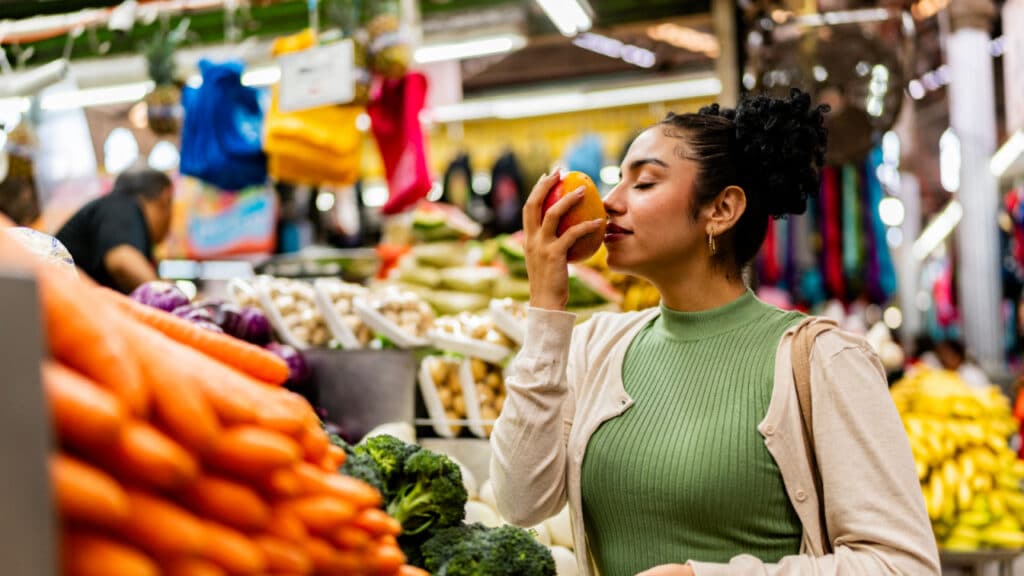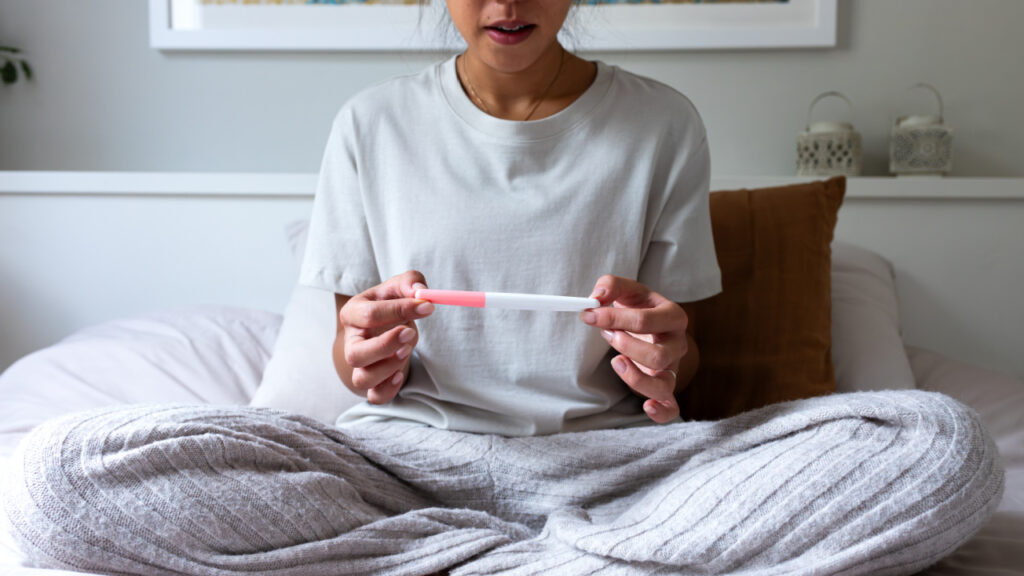
Is Shopping Like a Señora the Real Secret to Longevity?
There’s a new kind of wellness advice making the rounds on TikTok, and it doesn’t involve supplements, cold plunges, or 10-step routines. Instead, it’s about how our abuelas lived. You know, when shopping meant walking to the mercado, chatting with the tortilla lady, and sharing secrets with the bananero.
Ann Murray-Dunning, co-author of Radical Señora Era, put it plainly in her video: “Instacart might be ruining your connection to your culture.” And she might be right.
The Señora way of shopping was about community, not consumption
In her TikTok, Murray-Dunning breaks down the difference between shopping with your phone and shopping with your whole self. “Our abuelas didn’t Instacart their food,” she explains. “They went to the mercado almost every day… It was rhythm, it was nourishment, and above all, it was a community.”
That idea isn’t just nostalgic. According to Harvard’s T.H. Chan School of Public Health, social connection has been shown to increase longevity by up to 50 percent. Researchers say loneliness can carry the same health risks as smoking or obesity.
So when Murray-Dunning says that going to the market was about “memory, belonging, identity,” she’s not romanticizing. She’s pointing to a deeper truth: señora habits are survival strategies.
Why shopping like a señora might be good for your mental health
Harvard scholar Jeremy Nobel told the university’s public health journal that loneliness should be treated like hunger. “I’ve never met anyone embarrassed about being thirsty, so why are we embarrassed about being lonely?” Nobel argues that community routines—like going to the same vendor for tortillas each week—act as daily medicine for mental health.
Stanford researcher Steven Crane echoes that. “Our relationships form a lattice of support that constitutes the largest single factor in the overall well-being of most people,” he said. When those networks disappear, our health suffers.
Shopping like a señora, then, is about showing up not just for your pantry, but for your people.
Señora-style shopping is better for your body and your budget
Beyond social ties, there’s growing evidence that señora-style shopping at mercados is healthier for your body. According to Colombian research nonprofit Dejusticia, fruits and vegetables sold at farmers’ markets have fewer preservatives and chemical additives because they don’t pass through long supply chains.
Nutritionist Mercedes Mora told the group that fewer steps in commercialization mean fewer additives like “preservatives, colorants, or antifungals.” And medical researcher Luis Fernando Gómez added that consuming more fresh food “significantly reduces the risk of cardiovascular disease and certain types of cancer.”
Plus, these shopping habits benefit your bank account. According to Dejusticia, farmers who sell directly to consumers experience a 63% increase in income compared to traditional distribution chains. Consumers pay less because no intermediaries set arbitrary prices.
Shopping with intention can help fight climate anxiety, too
The señora method is also better for the planet. According to the Universidad Nacional de Colombia, transporting food over short local circuits produces 8 to 14 times less pollution than importing food internationally. Buying from small-scale vendors reduces plastic and Styrofoam waste, a significant issue in cities like Bogotá, where only 15% of solid waste is recycled, according to Greenpeace.
Even the United Nations is pushing for a revival of traditional markets. In a 2025 report, Peru’s Minister of Production called local abasto markets “dynamic centers that drive the local economy, promote social inclusion, and contribute to the country’s sustainable development.” Translation? These markets are good for people and the planet.
Señoras were doing slow living before it was a trend
Murray-Dunning says modern señoras can bring these traditions into the now. Her tips: shop once or twice a week, buy from small grocers or farmers, compliment the produce, ask for recipes, and cook like an abuela with whatever modern tools you have.
And don’t underestimate the importance of talking to people. “Community starts with little movements like this that were so common and familiar to your tías and mis abuelas,” she explains.
It’s about grounding. As she puts it, “When our communities are experiencing so much stress and anxiety, keeping these everyday traditions alive actually matters so much more.”
Shopping in person is also about healing our attention spans
Stanford’s social neuroscience team found that social interactions release dopamine, which helps us feel rewarded and connected. Think of it as a built-in feedback loop. Smiling at your panadero literally boosts your brain.
So when Murray-Dunning says, “Maybe what you really need right now is to go see the lady with the tamales,” it’s not just poetic. It’s neurological.
Señora wisdom isn’t anti-tech. It’s actually pro-presence
Murray-Dunning isn’t saying throw out your phone or stop using Instacart altogether. “Instacart is super convenient,” she says. “Of course, I love Instacart.” But she urges us to recognize what we’re losing when we only shop on autopilot.
This isn’t about rejecting modern life. It’s about anchoring it in something older, something deeper. Because culture doesn’t survive in the algorithm. It survives when we keep living it together, intentionally, with our hands full of herbs and our ears open to chisme.
So, is shopping like a señora the key to living longer? Maybe. But it’s definitely a way to feel like you belong again.




